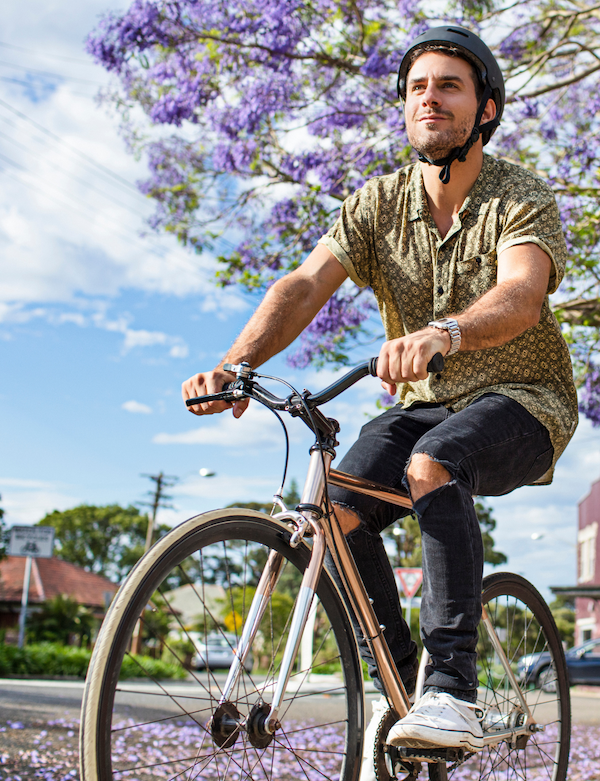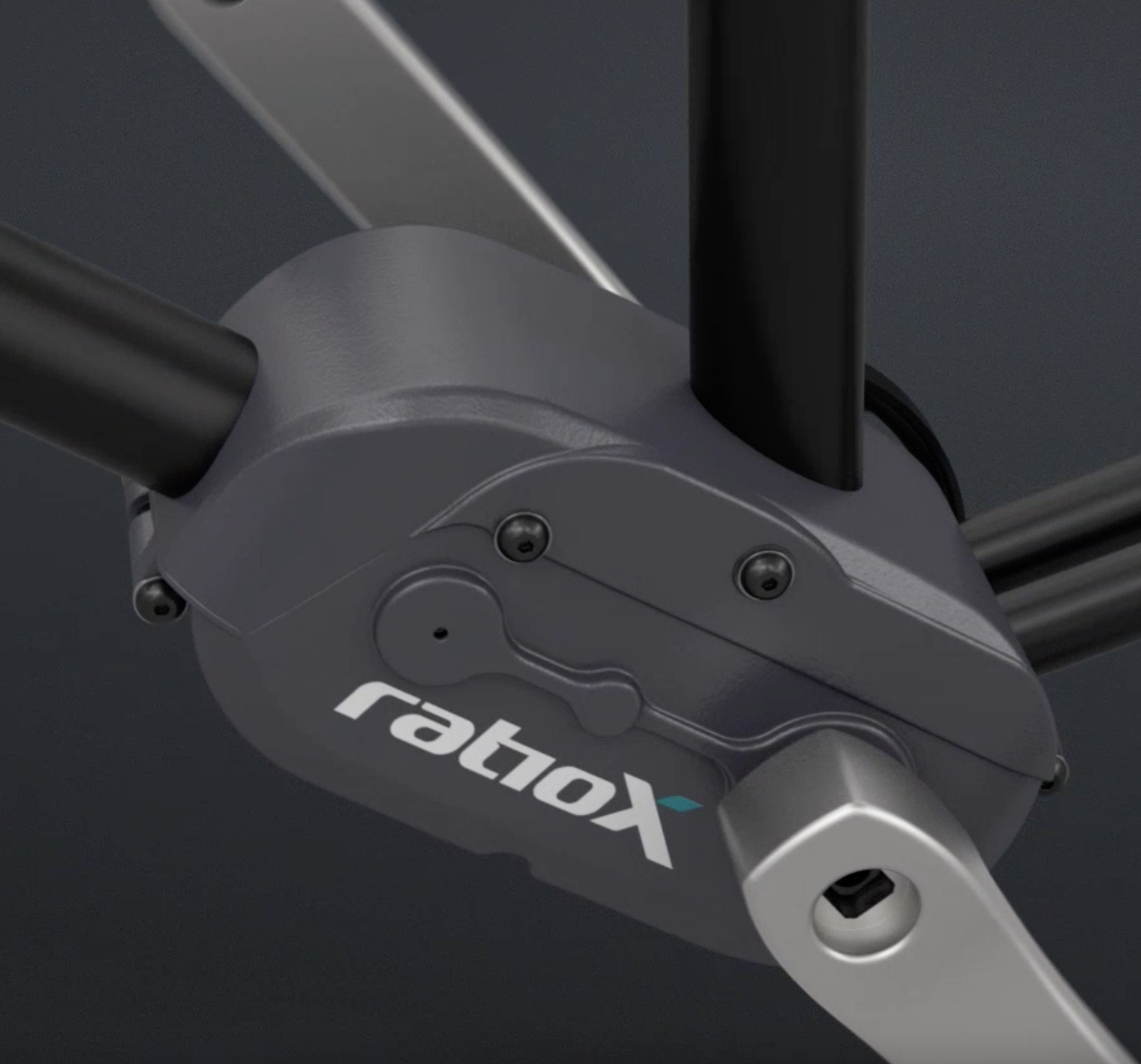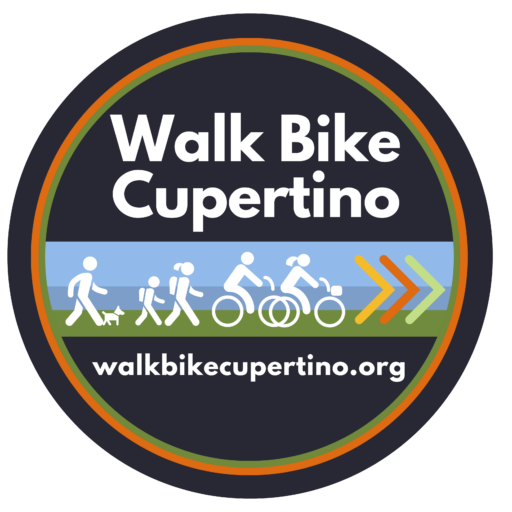Walk-Bike Cupertino Board member and Vice-Chair of the Cupertino Bike Ped Commission Hervé Marcy met with Simon Faneco, CEO of ratioX. ratioX makes touchless automatic bike transmissions, a unique innovation designed to increase the enjoyment of bike and ebike riding.
Tell us a bit about ratioX.
ratioX applies a CVT (constantly variable transmission) for the first time to a bicycle. This gives an autonomous, smooth and unrecognizable gear change, such as you find on a Motor Scooter or a Snowmobile. ratioX is currently pre-revenue, with a small team and we have just completed Product Development and are in integration phase with a few early customers now.

What are the challenges of making it? What are the challenges of introducing it to the market?
Ha! Where can I even start? Developing a very complex product where all the formulae needed to be created from scratch? Finding funding for a capital intensive, long lead-time technology, that is either said to be impossible by experts, or not needed by bicycle geeks? Finding experts to support the company in various ways on no/low payments and with only a chance of future success? There are many. This company is like many startups, but the long development lead-time, and no ability to sell early and generate revenues really hurts. For market introduction, the main concern we have is managing after-sales. Typically this is managed by the component producer for bikes, unlike most other things, such as cars.
How did you think of the idea of automatic transmissions for bikes?
The family friendly story is that the idea for ratioX came when I was cycling to work at Toyota one day and my derailleur broke. This was at 7 in the morning and in the pouring rain. I was late for a meeting, had greasy hands, and thought there is no way Toyota would release a product that gives this experience to the consumer. I thought, why don’t I develop something?
That is a true story, but the real lightbulb moment came when I was backpacking through India, which I later learnt is also where and how Steve Jobs found his lightbulb moment. At that point it became a mission, rather than just an idea.

You started with retrofitting on regular bikes and have now pivoted to ebikes. Why did you make that pivot?
ratioX can be fitted to any bike, and we sell to all bicycle companies. Watching the market evolve globally, but especially in Europe, it’s clear eBikes have the largest growth and command a higher sales price – both great things to apply new technology onto. eBikes are close to 40% of sales volume in Europe, with some markets like Switzerland and the Netherlands (I could hardly believe that!) at around 60% and still growing. The average price for a regular bike in Europe is €350, while the average eBike price is €3,500. Clearly sales are growing in that segment, and with a higher sales price, it is more attractive to add this type of feature.
Tell us a bit about yourself and the challenges you are facing as an entrepreneur.
I have always cycled around – since I was about 6 years old, I grew up in a country town in Australia with little traffic. I also used to race Motocross at a national level in Australia, and did Mountain Biking too. Then on an exchange program during my time in college, I went to the Netherlands and saw —WOW, a whole city can really operate almost without cars and with everyone cycling – AND everyone enjoys it. It is really practical. Now eBikes have opened this same possibility up to many more cities which are hillier or larger! Later I became an experienced Product Engineer and MBA, having developed automotive seating for cars such as the Tesla Model S, Ford and GM in Australia and various Chinese OEMS, and after the MBA worked in Internal Consulting at Nestlé HQ primarily evaluating global production capacity and the financial analyses of various scenarios.

I’m facing the same challenges as many entrepreneurs: finding cash, finding customers, finishing product development and industrialisation, managing landlords, managing suppliers – and that was just last Friday…
How do you see the eBike market evolving in the future?
If we are talking about the US, it is difficult for me to see right now. The car is still king, generally people are not used to cycling, and the road infrastructure in general is low quality and especially so for bikes. Likely eBikes will be popular for mountain bikes. What is very interesting is the development of fat tire eBikes for youths, with brands such as Super73 becoming global successes. This shows promise that youths will experience the many benefits that cycling brings, and can allow them to be more comfortable with cycling as a transport choice in adult life.
The story for most of the rest of the world is that cycling is established, growing in popularity, and eBikes are allowing even more options for people to choose to cycle regularly. A McKinsey survey report shows that 40% of people globally want to cycle to work, while currently only 12% do. That shows a massive unmet potential for bikes and eBikes. I believe many in the industry still do not fully appreciate that statistic, and have definitely not capitalized on it.
As you are now living in Switzerland, tell us how bike-friendly it is.
Switzerland is a cycle friendly country from a global view, but would be average in Europe. Copenhagenize (https://copenhagenizeindex.eu/) lists the top 20 most bicycle friendly world cities bi-yearly, and no Swiss cities have made the list. The Netherlands government even has the Dutch Cycling Embassy, who promote internationally the infrastructure developments learnings from the Netherlands, so clearly the Netherlands is the leading bike-friendly country. Since COVID there has been a massive shift to increase bicycle lanes in Switzerland. I can now cycle from home to my office, a ride of 6km, almost entirely on car-free lanes or paths. This was not the case 5 years ago. A major factor for this to happen is the legal requirement to consider bikes equally with pedestrians and cars when designing “roads”, or places for people to move.
Thank you to Simon Faneco for sharing his insights and sharing with us information on this new technology. For more information on ratioX, please go to https://ratiox.ch/. ratioX is currently available to ebike and bike manufacturers and retailers. No WBC board member, including the author of this article, has a business relationship with ratioX nor been compensated for this interview.

